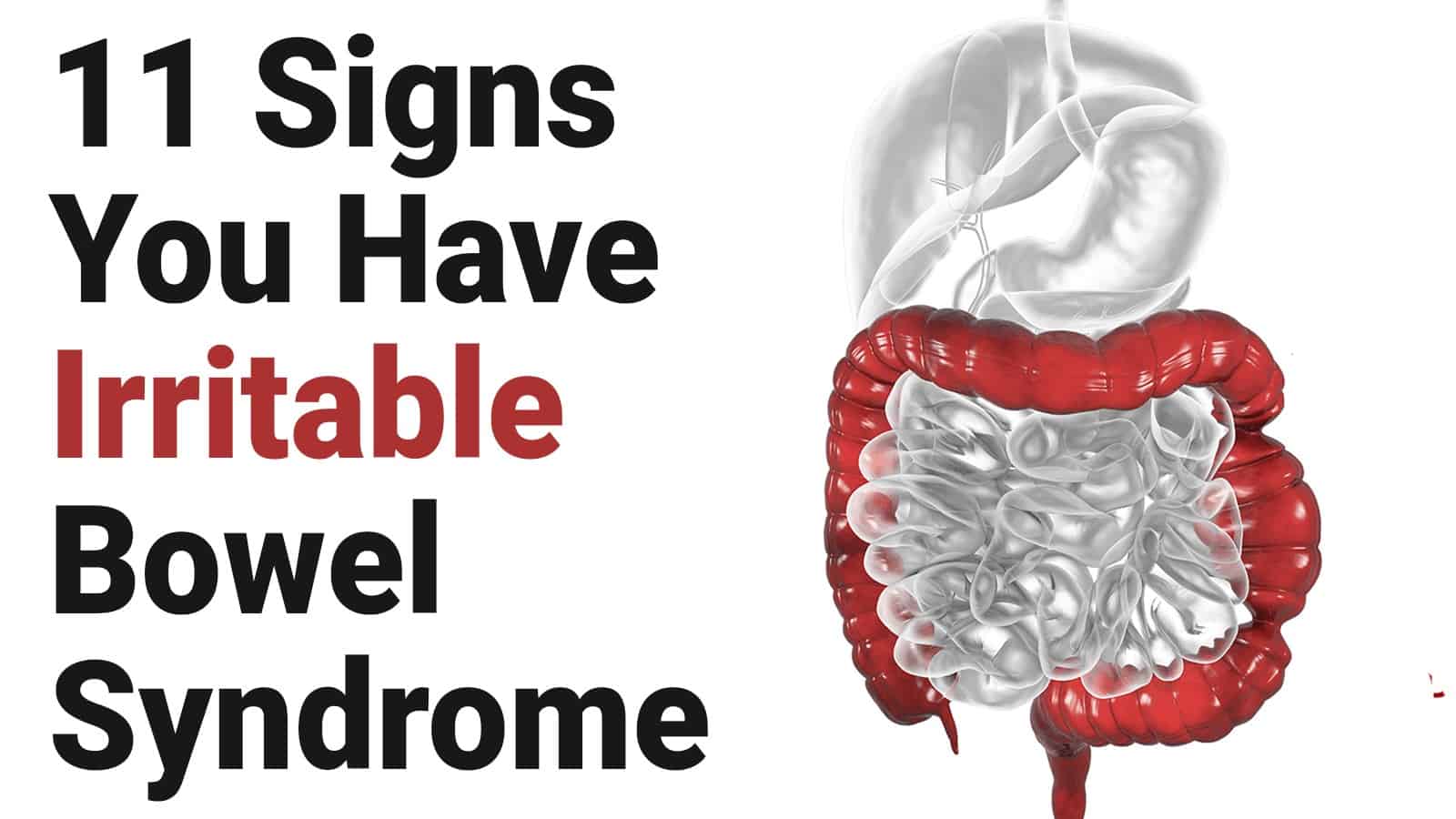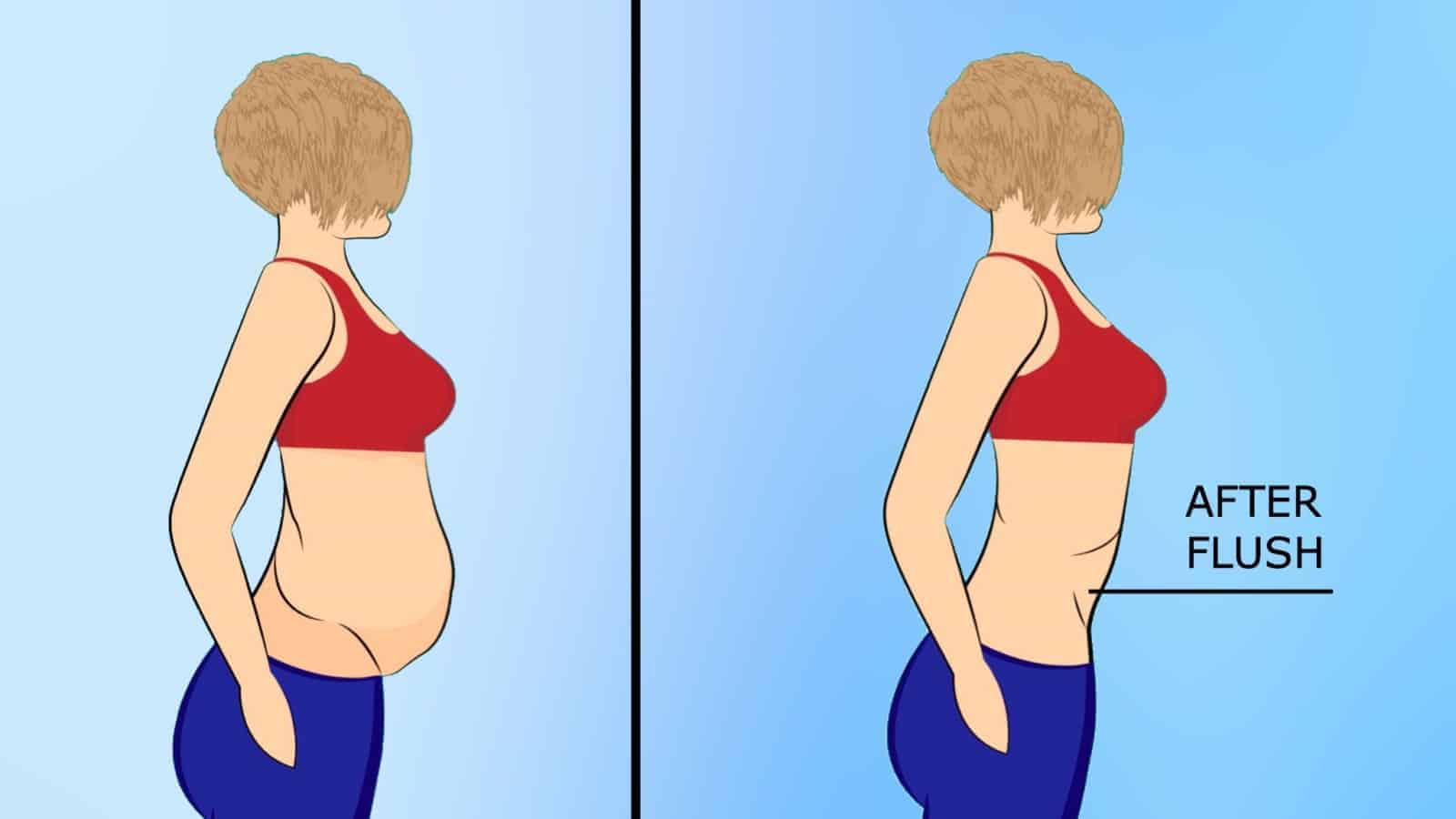Irritable bowel syndrome, or IBS, is a chronic (long-term) health condition affecting the large intestine. IBS, while undoubtedly uncomfortable, does not pose any serious threat to health. The symptoms of IBS can be quite severe, however.
Today, we are going to talk about 11 possible signs of IBS. We’ll also discuss some ways to prevent and relieve IBS symptoms.
Let’s start by discussing 11 possible signs that you have irritable bowel syndrome:
1. Pain and cramping of the abdomen
IBS pain and cramping occur almost exclusively around the stomach area. This pain is often described as sharp and sudden. It is common for this pain to be sporadic, but when it does occur, it is intermittently experienced throughout the day.
2. Abrupt changes in bowel habits
The onset of IBS almost always begins with a change in bowel habits. So sudden are these changes that the person often feels an immediate need – an emergency – to locate the nearest toilet. (Think Jeff Daniel, a.k.a. Harry, in the infamous “Dumb and Dumber” toilet scene ?.)
3. Sour taste in the mouth
For some strange reason, the onset of IBS may produce a nasty, sour taste in the mouth. If this symptom is not due to recently eating a potent food; for example, garlic, grapefruit, etcetera, a sour taste of the mouth may be a possible sign of IBS.
4. Frequent need to urinate
The urge to pee is often associated with IBS. Not only is this potential sign annoying, it is also extremely disruptive. If this happens, try cutting back on excess fluids, including water if you drink a lot of it (64 ounces is the recommended amount.) If this doesn’t work, seek the advice of a doctor or your wellness professional.
5. Weird-looking poop
Okay, so this one is gross, but the size, shape, and texture of your BMs can indicate a problem with your gut. While talking about your poop with a doctor may feel uncomfortable, it’s better to be safe.
6. Watery diarrhea
Speaking of weird-looking poop, there’s the kind that seems to resemble more water than food. Also called watery diarrhea, this is a near-universal sign of either IBS or some other gut trouble.
7. Anxiety and stress problems
The mind and body are connected. This fact has been proven and re-proven by experts in the scientific medical community. The gut, in particular, seems to have a close relationship with our brain. In fact, the discovery that the gut contains a disproportionately high number of neurotransmitters has earned it the nickname the “Second Brain.” (By the way, it is the presence of this “second brain” that is responsible for that “gut feeling.”)
8. Bloating and swelling
No surprise here. An irritated gut is a bloated gut – that’s just inflammation for you. If your tummy feels more swollen and bloated than usual, seek some medical advice.
9. Heart palpitations
Heart palpitations – a heart that feels as if it’s “fluttering” – is a telltale sign of anxiety. As mentioned, anxiety is closely linked to IBS. Obviously, then, the heart may act a bit strange in the presence of an irritated gut.
10. Fatigue
When the gut is overly active, it drains the body’s energy reserves. Of course, low energy resources leads to tiredness (which, by the way, often manifests as brain fog and cloudy thinking).
11. Acid reflux
Lauren Gerson, MD, an associate professor of medicine at Stanford University, says that about 40 percent of those with Irritable Bowel Syndrome experience acid reflux, and vice versa. Both conditions produce bloating and swelling, nausea, and possibly heartburn (in the case of IBS.)
Preventing and Treating Irritable Bowel Syndrome
The most important thing when it comes to preventing IBS symptoms is avoiding what are called “triggers.” These controllable factors irritate the stomach. At times, they can also lead to a bout of IBS.
Here are some common triggers of Irritable Bowel Syndrome:
- Diet: too many refined grains and processed foods; excess alcohol and caffeine; fatty dairy products; and a lack of fiber.
- Environment: stressful work; financial problems; feeling out of control; not enough rest and relaxation time.
- Drug-related issues: anti-depressants, antibiotics, sugar substitutes (e.g. sorbitol, aspartame, etc.)
Here are some natural ways to curb IBS symptoms:
Diet: Eat the right amount of fiber. Some high-fiber foods include fruits, vegetables, beans, and legumes.
Relaxation: Suppressing an overactive stress response (“fight-or-flight”) is critical to avoiding IBS flare-ups. The International Foundation for Functional Gastrointestinal Disorders cites three research-proven ways to reduce IBS symptoms. These include abdominal and diaphragmic breathing, positive imagery and visualization, and progressive muscle relaxation.
Movement: Try to get a minimum of 30 minutes of exercise every day. Here are a couple of tips to make sure you get this recommended half-hour: split exercise sessions into 15-minute segments, find an enjoyable activity (e.g. cycling, basketball, tennis), and walk outside whenever possible during work.
Herbs and spices: Herbs and spices like ginger and peppermint can relieve some of the overactivity of the gut. In effect, this can potentially prevent IBS flare-ups.
To your continued tummy health!
https://youtu.be/KKB0jThAfnQ


















